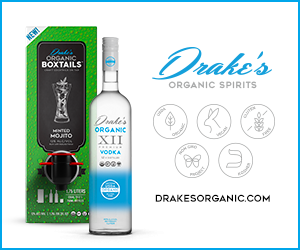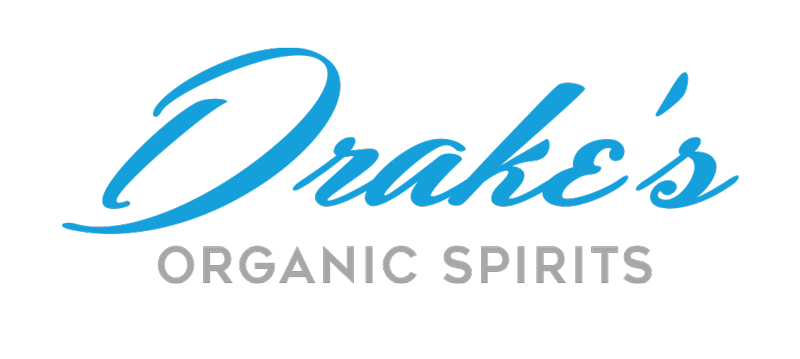From where to shop to what to eat or what spirits to drink, people are constantly making choices based on the information made available to them. But making an informed choice can prove difficult when certain pieces of information aren’t provided or easy for a layperson to understand.
In the alcohol beverage industry, the information required to present to consumers remains minimal, due to the fact that oversight has been handled by the Alcohol and Tobacco Tax and Trade Bureau (TTB), rather than the Food and Drug Administration (FDA) since the end of Prohibition. But increasingly, buyers are becoming more curious not just about the flavor or strength of what they’re consuming, but also about the origins, process, and attributes in everything from sustainability practices during ingredient harvesting to whether the product contains potential allergens.
Alcohol brands like Drake’s Organic Spirits, CANTEEN and Crook & Marker are some of the craft spirits companies that specifically list characteristics of their products, including certifications from organizations like USDA Organic, Non-GMO Project and more. Largely, this proactive transparency is driven by increasing consumer demand.
“Right now, people love to feel like the brands they choose allow them to make responsible choices about their health and well-being,” says Brandon Cason, CEO of CANTEEN. Global analytics firm Nielsen projects this motivation towards buying products aligned with personal values like health, wellness and sustainability will continue to rise. “By 2021, we expect sustainable-minded consumers in the U.S. to spend $150 billion on sustainable products,” they explain in a 2019 podcast. They go on to say that a staggering 73% of those surveyed would “definitely or probably change a behavior to reduce their impact on the planet.” Globally, this shift towards eco-conscious products and practices has reached nearly every consumer goods industry, from beauty products to beverages.
That puts companies like Drake’s Organic Spirits in a competitive position, thanks to their early prioritization of sustainability in everything from packaging to product. “[Committing to sustainability] was really a business decision, tied in with the responsibility side of delivering a high quality product with less impact to the environment,” says Mark Anderson, founder of Drake’s. “It is the direction that consumers have voiced their concern and show that they have interest in buying high quality products that are better for the environment.”
Alcohol’s environmental impact begins at the source — literally where and how the ingredients are sourced. “When a consumer chooses organic and non-GMO products, what they’re actually choosing is something that was produced in a way that has less impact on the environment: less pesticides and herbicides used, farming that’s done in a sustainable fashion,” says Anderson. Much of the time, it also means customers can expect to avoid things like artificial colors, flavors or unnecessary chemicals in what they’re consuming.
There are levels of how organic certifications can be used on labels, ranging from 100% organic to simply containing some organic ingredients. For consumers unfamiliar with the differences between them, this variation can be confusing. But as the Mayo Clinic explains, “there is a growing body of evidence that shows some potential health benefits of organic foods when compared with conventionally grown foods.” Long story short? It can’t hurt, and will very likely help, to choose organically certified foods and beverages when possible.
When it comes to grasping what non-GMO (genetically modified organisms) products contain, it can also be a bit confusing to consumers not well versed in that designation. The Non-GMO Project, the leading nonprofit verification organization for non-GMO food and products, breaks down the risk level of common crops like corn and soy, and represents over $26 billion in annual sales for over 3,000 brands. It’s one of the fastest growing certifications in the natural food and drink industry, and one that’s increasingly gaining attention in craft spirits circles, thanks to the fact that roughly 92% of corn grown in North America is genetically modified.
“We hope that the industry moves towards allowing, or requiring, more transparency on what alcohol is derived from,” says Anderson. “Consumers should know, so they can vote with their dollars.”
This level of commitment to sustainability on multiple fronts comes at a financial cost to the producer. The USDA estimates a price tag to become certified organic to fall between a few hundred and a few thousand dollars, although there’s some debate about whether that’s an underestimation. The process for obtaining organic certification is fairly arduous as well as ongoing, meaning any spirits company who has invested in that process must believe in its importance so much that they’re willing to sacrifice potential profits to remain certified.
However, this cost isn’t always passed down to the consumer. In fact, alcohol delivery provider Drizly lists a 750 mL bottle of Drake’s Organic Premium Vodka at $19.99, with the same sized bottle of Grey Goose starting at $32.99. Still, that financial cost absorbed by producers can provide enormous value for both producers and consumers, and that pool of eco-conscious consumers continues to expand. At Anaheim, California’s first Natural Products Expo West in 1981, around 3,000 attendees showed up. Today, that number has ballooned to closer to 100,000 with exhibitors coming from over 130 countries. It remains the world’s largest natural and organic products event, and shows there’s “an explosion in consumers looking for better for you and better for the environment,” according to Anderson.
Craft brands are far from the only spirits companies seeking opportunities to be the first; even Buffalo Trace Whiskey released “the first authentic Kosher Whiskey” in 2020. Drake’s Organic Spirits also claims to be the first and only spirits line in the world that’s USDA certified organic, non-GMO Project certified, gluten free, vegan and kosher. Being able to designate oneself as the “first” or “only” gives brands a competitive advantage that allows them to leverage a designation no one else can claim. But they don’t stop there — even their packaging has a sustainability slant.
As ready-to-drink alcohol beverages began to explode with the popularity of hard seltzers over the past few years, aluminum cans became more difficult for companies to acquire. On top of the diminished supply, Anderson explains that only around 30% of cans end up getting recycled. To minimize supply issues and maximize sustainability, Drake’s decided to use recycled cardboard and recyclable plastic bibs for their boxed cocktails (called “Boxtails”) for less packaging — a win for the producer, consumer and earth at large.
The old saying goes “knowledge is power,” and it holds true today. Knowing what’s in your drink is good. Also knowing where it comes from is better. Knowing you can enjoy a delicious beverage that’s better for you and the world is best. By supporting companies who provide transparency in ingredients, sourcing, and overall sustainability, everybody wins.
For more information go to drakesorganic.com.com.
Beth Demmon is a San Diego-based freelance writer specializing in all things alcohol.



